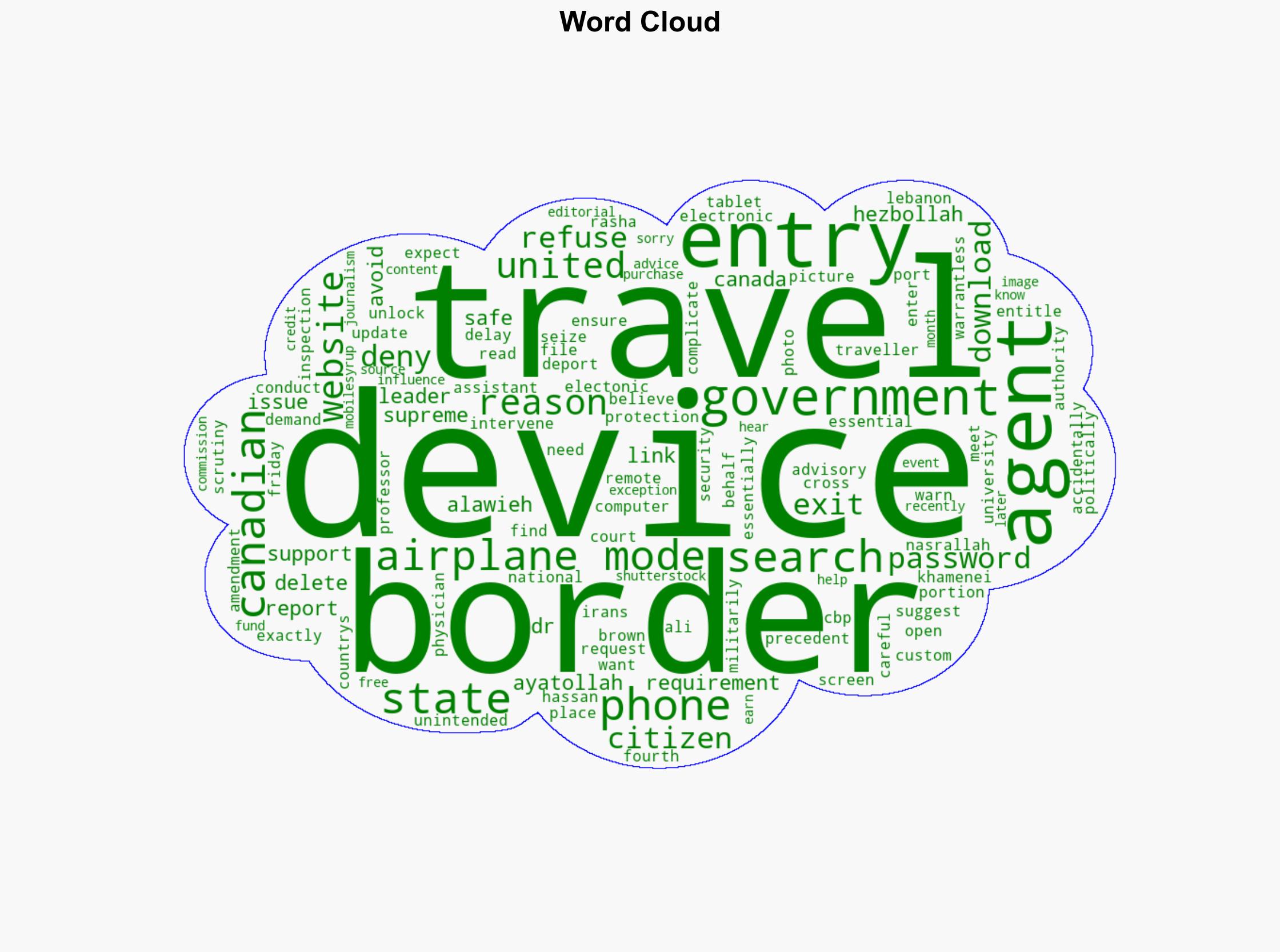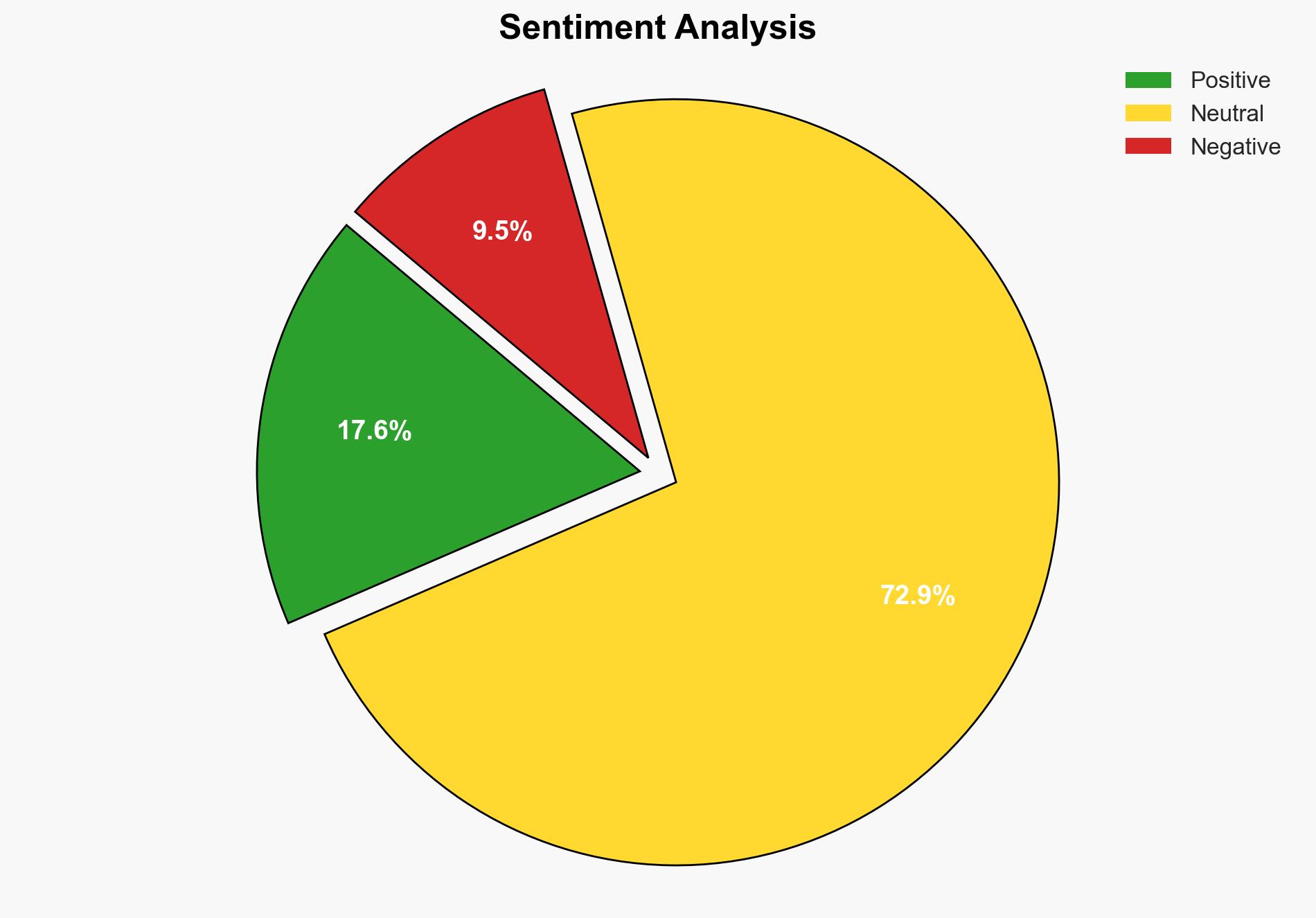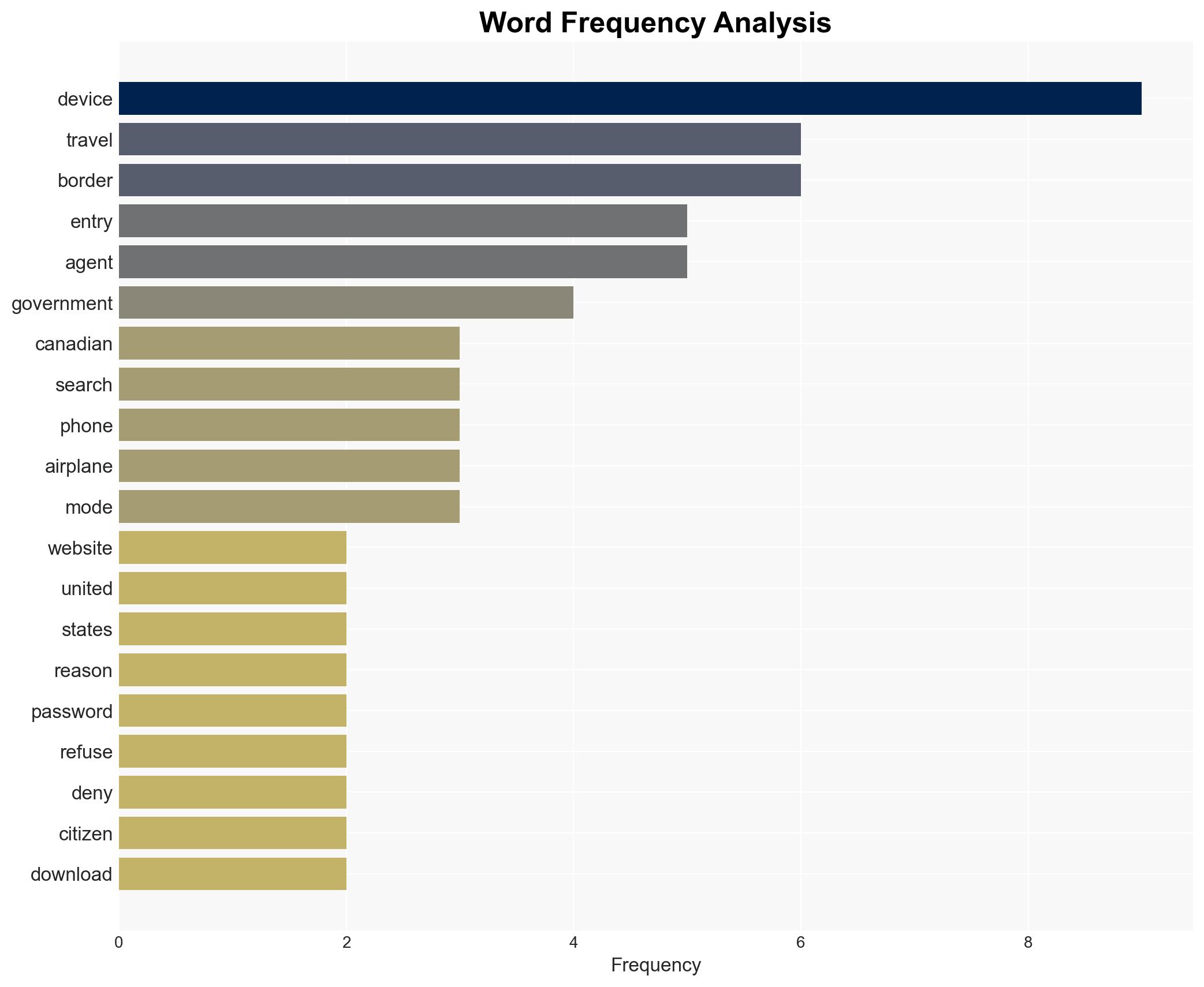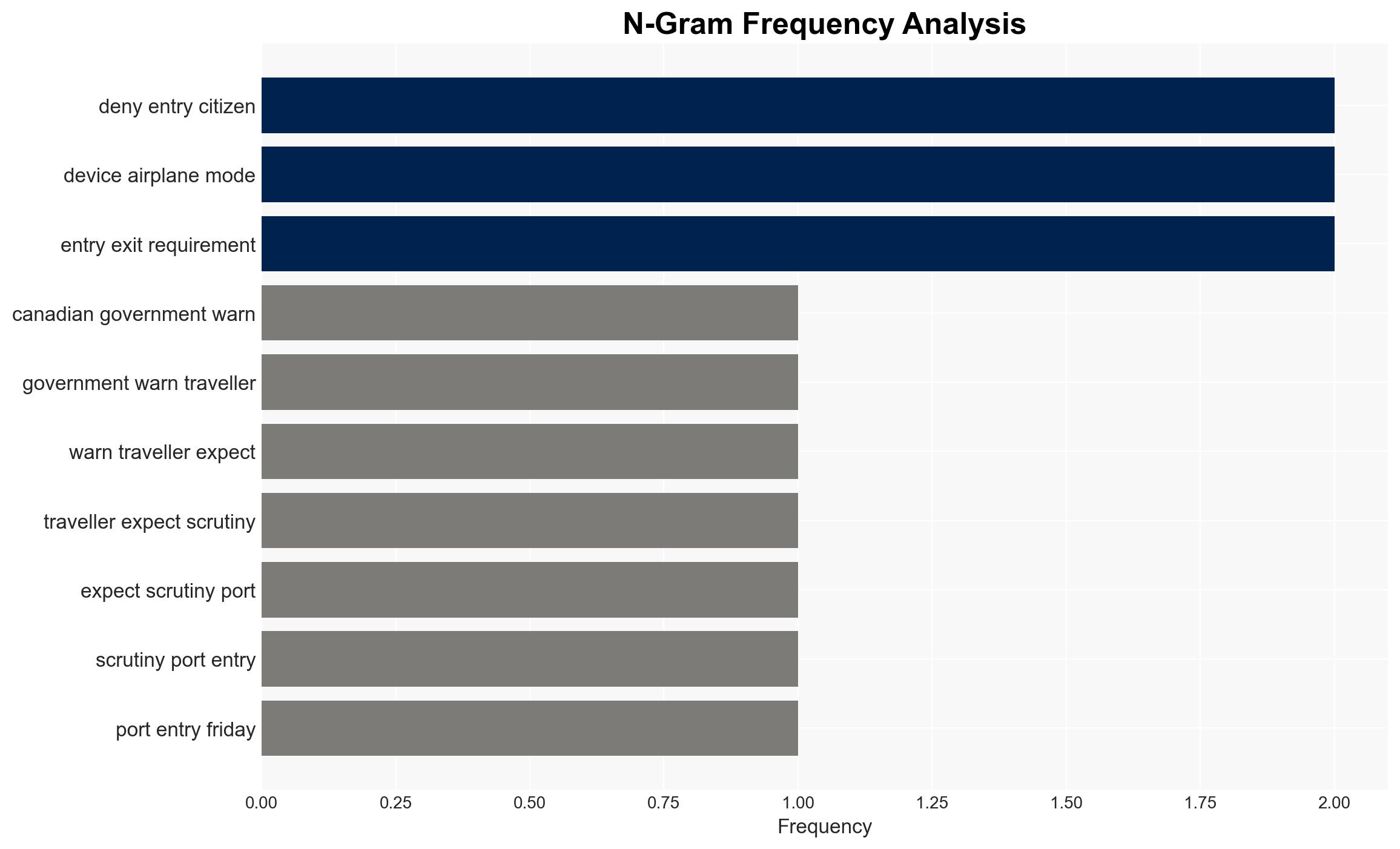US border agents can demand to search phones Canada warns – MobileSyrup
Published on: 2025-04-06
Intelligence Report: US border agents can demand to search phones Canada warns – MobileSyrup
1. BLUF (Bottom Line Up Front)
The Canadian government has issued a travel advisory warning travelers about the potential for increased scrutiny of electronic devices by US border agents. This advisory highlights the authority of US Customs and Border Protection (CBP) agents to demand access to electronic devices without needing a specific reason. Travelers are advised to take precautions, such as placing devices in airplane mode, to prevent unintended data downloads. This development could impact cross-border travel dynamics, raising privacy and legal concerns for travelers.
2. Detailed Analysis
The following structured analytic techniques have been applied for this analysis:
General Analysis
The Canadian government’s advisory underscores the broad powers granted to US border agents to conduct warrantless searches of electronic devices. This authority is rooted in national security concerns but raises significant privacy issues. The advisory suggests that travelers may face delays or denial of entry if they refuse to comply with device search requests. The case of Rasha Alawieh illustrates the potential consequences of non-compliance, as her deportation was linked to the discovery of specific images on her phone.
3. Implications and Strategic Risks
The increased scrutiny of electronic devices at US borders poses several strategic risks:
- Potential diplomatic tensions between Canada and the US due to perceived overreach in privacy violations.
- Increased anxiety and uncertainty for travelers, potentially affecting tourism and cross-border business activities.
- Legal challenges and public backlash regarding privacy rights and the scope of border search powers.
4. Recommendations and Outlook
Recommendations:
- Encourage travelers to be informed about their rights and the potential for device searches when entering the US.
- Advocate for clearer guidelines and transparency from US authorities regarding the criteria for device searches.
- Promote technological solutions that enhance data privacy and security for travelers.
Outlook:
Best-case scenario: Enhanced cooperation between Canada and the US leads to improved guidelines and reduced tensions.
Worst-case scenario: Increased diplomatic strain and a decline in cross-border travel due to privacy concerns.
Most likely outcome: Continued scrutiny of electronic devices with gradual adjustments in policy and practice as legal and public pressures mount.
5. Key Individuals and Entities
The report mentions significant individuals and organizations, including Rasha Alawieh, Hassan Nasrallah, and Ali Khamenei. These individuals are referenced in the context of device searches and their implications.





